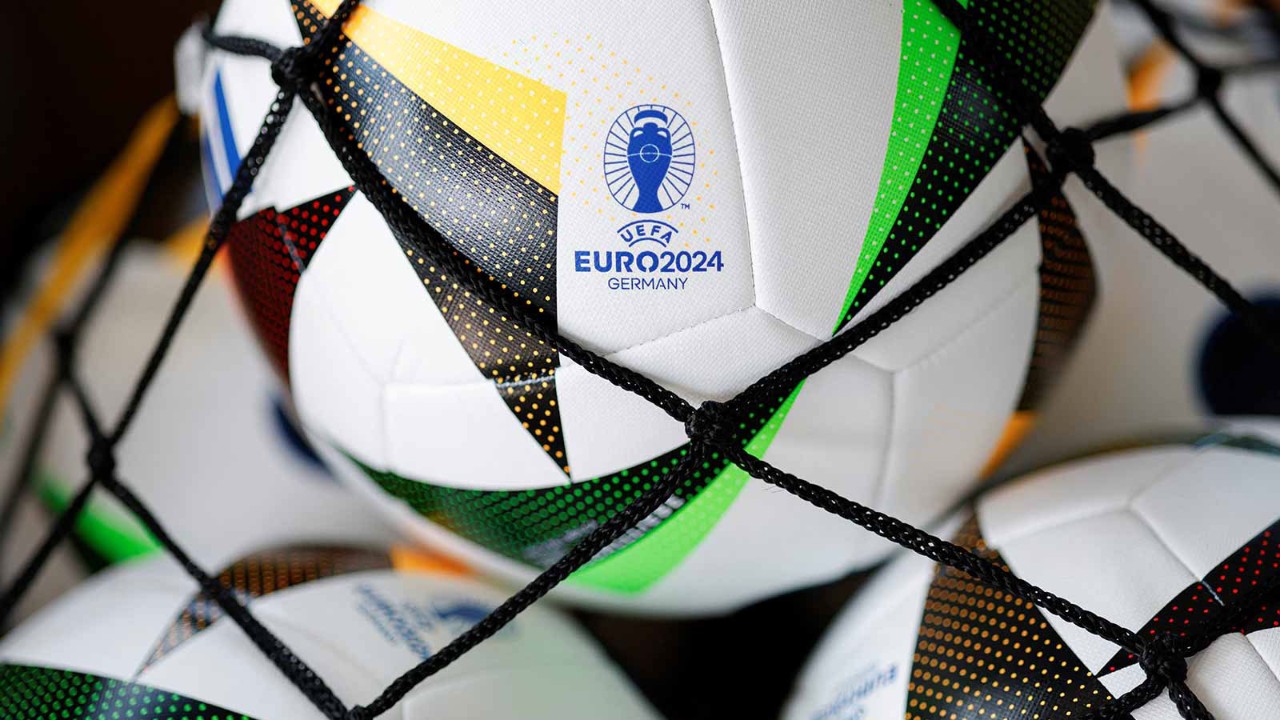
Uefa is working to make its Euro 2024 tournament ‘the most sustainable European Championship of all time’.
This year’s tournament, which is spread across 10 cities in Germany, including Berlin, Cologne, Munich, Frankfurt and Hamburg, will run from 14 June to 14 July. It is expected to generate a record €2.4bn (US$2.6bn) in commercial revenues (26% higher than Euro 2016 in France) and deliver close to €2bn (US$2.2bn) in profits, also a record. Only the summer Olympics (US$4.2bn in 2020) and the football World Cup (US$7.5bn in 2022) generated larger revenues in sport.
‘It is a big opportunity to show how sustainability can be a driving force for success’
Alongside increasing revenues, sustainability is central to Germany’s hosting of the tournament. The governing body published its Euro 2024 environmental, social and governance (ESG) strategy at the COP 28 climate change conference in Dubai last year. The document outlines how environmentally friendly initiatives have been adopted to reduce the tournament’s carbon footprint.
‘Environmental aspects are one of the core priorities for the organisation of the event,’ Uefa promises. ‘As an organiser, we are aware that the organisation of such a major event, gathering football stakeholders and fans from all over the world, involves a significant footprint. We are therefore determined to be part of the solution to reduce as much as possible our impacts on the environment.’
Multipronged
Its initiative is structured into 11 areas of action including climate action and sustainable infrastructure. The actions span 28 topics, including carbon management, energy, water and accountability.
A key focus of the strategy is the establishment of a €7m climate fund dedicated to mitigation projects to counter the tournament’s unavoidable emissions. Amateur football clubs in Germany have been granted a total of €2.3m by the fund to support their climate protection projects.
‘Euro 2024 is a big opportunity for us to show how sustainability can be a driving force for the event’s success,’ says Michele Uva, Uefa’s director of social and environmental sustainability. ‘The legacy is not only for Germany, but all of European football and other sports if we can inspire them.’
The previous tournament, Euro 2020, which took place in 2021 across 11 countries, drew criticism for its climate impact, due to excessive travel requirements placed on fans, players and officials.
Holders of match tickets will be able to travel free of charge on local public transport
Far and wide
A total of 2.7 million tickets are available for this summer’s 51 games. Germany’s National Tourist Board also expects another seven million spectators in fan zones and at public viewing events. Supporters are expected to arrive from Europe, the US, Canada, Australia, China and Mexico.
About 80% of Euro 2024’s carbon footprint is expected to come from transport, particularly air travel. To combat this, Uefa is subsidising a 25% discount on Interrail passes to encourage Euro 2024 ticketholders to use trains when moving between host cities. Once they reach host cities, holders of match tickets will be able to travel free of charge on local public transport for 36 hours.
Rail operator Deutsche Bahn has also promised 10,000 extra match-day seats on high-speed trains. Car parking will be heavily restricted close to the stadiums where matches are being played.
Match schedules have been arranged so that fixtures are divided into three geographical clusters in the north, west and south of the country. Each team will play twice in one cluster, reducing the need for fan travel. Teams will also be encouraged to move about by train or coach.
An alliance of national environmental NGOs is urging the Germany squad to travel sustainably on low-emission modes of transport such as rail. ‘As hosts, we should and can set a good example,’ they say in an open letter.
No new stadiums have been built for the tournament
Energy saving
The German Football Association will further minimise emissions by reducing floodlight operation times and restricting power consumption in media centres. It will use renewable power in stadiums and headquarters, while measures to minimise water consumption have also been promised. Vegetarian alternatives will be on sale alongside traditional bratwurst offerings – and all with minimal, recyclable packaging.
Hartmut Stahl, lead author of a feasibility study for a ‘climate-neutral’ Uefa Euro 2024, says: ‘This is the first time all the stadiums and also public viewing areas plan to have reusable cups, so that’s definitely progress.’
The hosts did not need to build any new stadiums for the tournament, as Germany already has a number of modern, energy-efficient venues, many with green features such as solar panels.
It will be impossible to measure the true impact until long after the final whistle
True credentials
However, as with all major international sports events, it will be impossible to measure the true impact of the tournament until long after the final whistle. The ESG strategy states that key sustainability-related documentation will be made publicly available when an independent report is published post-tournament.
But despite the green strategies, organisers are still not marketing the tournament as ‘climate-neutral’. This is a delicate issue. Fifa, football’s global governing body, claimed that its 2022 World Cup in Qatar was the first carbon-neutral World Cup. But a complaint by Belgium, Britain, France, the Netherlands and Switzerland was upheld by a Swiss regulator, the Swiss Fair Trade Commission, which ruled Fifa’s claim untrue.
Critics also point out that there are question marks over the environmental credentials of some of Euro 2024’s 13 global sponsors.
‘The fans, the clubs, us working in the field – sometimes we feel a bit helpless when we see decisions being made at the top table that are completely against what we are working towards,’ says Anton Klischewski, a fair trade consultant and sustainability coordinator at amateur club FC Internationale Berlin.
He believes the only way to elevate environmental sustainability over profit is to make international football bodies more democratic – and more strictly regulated. ‘We need a new vision for football, with all stakeholders involved.’


